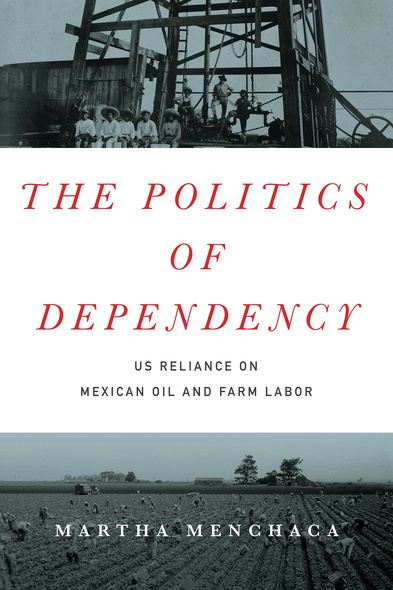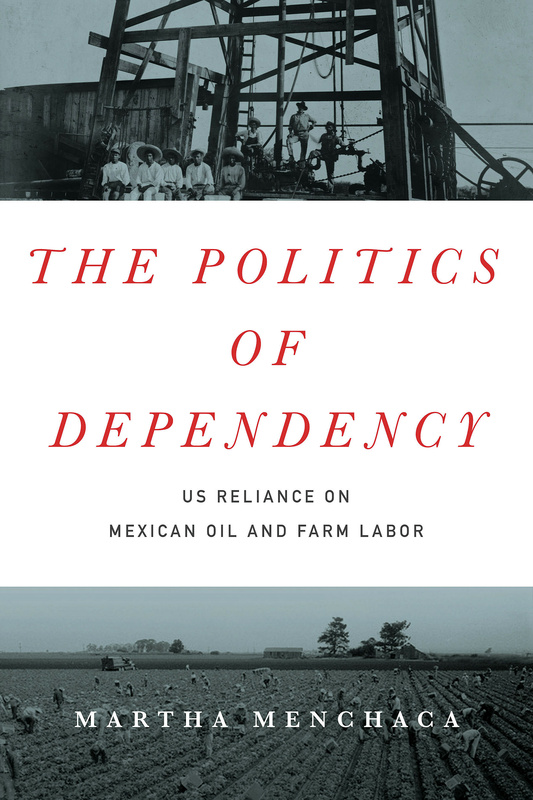
The Politics of Dependency
US Reliance on Mexican Oil and Farm Labor
The United States and Mexico trade many commodities, the most important of which are indispensable sources of energy—crude oil and agricultural labor. Mexican oil and workers provide cheap and reliable energy for the United States, while US petro dollars and agricultural jobs supply much-needed income for the Mexican economy. Mexico’s economic dependence on the United States is well-known, but The Politics of Dependency makes a compelling case that the United States is also economically dependent on Mexico.
Expanding dependency theory beyond the traditional premise that weak countries are dominated by powerful ones, Martha Menchaca investigates how the United States and Mexico have developed an asymmetrical codependency that disproportionally benefits the United States. In particular, she analyzes how US foreign policy was designed to enable the US government to help shape the development of Mexico’s oil industry, as well as how migration from Mexico to the United States has been regulated by the US Congress to ensure that American farmers have sufficient labor. This unprecedented dual study of energy sectors that are usually examined in isolation reveals the extent to which the United States has become economically dependent on Mexico, even as it remains the dominant partner in the relationship. It also exposes the long-term effects of the agricultural policies of NAFTA, which led to the unemployment of millions of agricultural workers in Mexico, a large percentage of whom relocated to the United States.
This very interesting book advances our understanding of the way developing nations and wealthy nations depend on each other. Menchaca carefully surveys dependency studies that explain how wealthy nations exercise power over developing nations.
Contributes strongly to our understanding of the long-term relationship of economic asymmetry between the United States and Mexico and its detrimental impacts on generations of Mexicans.
A significant contribution on a topic of great importance. That Martha Menchaca weaves together transnational energy resources and transborder labor transfer is remarkable. Her evenhanded analysis of asymmetrical relations contributes to economic and political discourses related to both countries and both sets of leaders.
- List of Tables
- List of Abbreviations
- Preface
- Acknowledgments
- Chapter 1. From Dependency to Codependency
- Chapter 2. The Politics of Oil and National Security: The Beginning
- Chapter 3. US Dependency on Mexican Farm Labor: The Development of a Structure
- Chapter 4. Asymmetrical Codependency following Crisis Periods
- Chapter 5. Mexico Reopens the Oil Industry to US Investors
- Conclusion. Asymmetrical Codependency: A Functional Capitalist Relationship
- Appendix A. Pemex Assessment of Mexico’s Proven Crude Oil Reserves, 1976 to 2014
- Appendix B. Pemex: Total Crude Oil Reserve Estimates, 2003 to 2014
- Notes
- Bibliography
- Index





